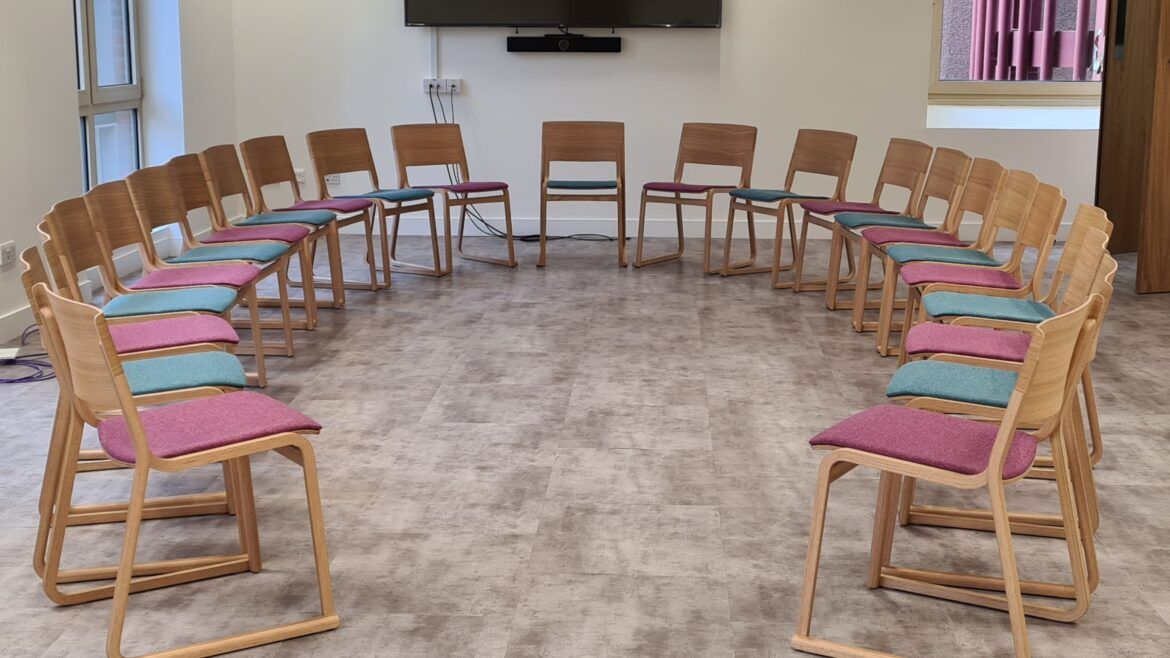
By Dr Alisha Patel (CT3 Psychiatry), Dr Haitham Ismail (ST6 Psychiatry), Dr Lorena Valdearenas (Consultant Psychiatrist)
We created and developed a psychiatry simulation course ‘Live the Experience’ with East London NHS Foundation Trust at their Experiential Learning Centre between August 2021-August 2022 in order to improve the training experience for new doctors to psychiatry. Preparation for this project included attending the Maudsley debrief skills course, observing simulation in other organisations and surveying ELFT trainees to inform the development of our course. We initially wrote a pilot simulation course with four clinical scenarios as well as a facilitator, actor and participant manual. These scenarios were discussed with the ELFT postgraduate leads to meet curriculum standards and our People Participation team were involved in preparation meetings to ensure the authenticity of scenarios too. The People Participation team contacted service users to join our preparation of scenarios meetings as well as simulation sessions. We faced some challenges in organises this for the pilot due to timings and availability but were able to contact them earlier in the process for the August 2022 roll-out of the course.
The half-day pilot in February 2022 was successful and participants (core psychiatry trainees and GP trainees) provided positive feedback, requesting for additional scenarios. We developed four more scenarios for a second half-day course so we were able to run both half-days in August 2022 for the new starters. The full set of scenarios we created were a risk assessment, section 5(2) MHA assessment, managing agitation and violence, escalating concerns to a senior, section 136 MHA assessment, seclusion review, discussion with medical registrar for physical health concerns, collateral history and information-giving in CAMHS. We used a structured debrief model (what went well, what could you have done differently, what was the ‘golden moment’?) and provided teaching in relevant aspects of psychiatry for each scenario. We were also fortunate to have service users join the debrief for their insights which were invaluable to participants. This involved sharing their feedback on communication skills and their own lived experiences with health professionals and the public. We highlighted the importance of psychological safety to both the service users and participants for this course, emphasising that everyone is capable and it is a friendly learning space. In addition to this, we pre-briefed the service users to pitch their feedback for new starters to psychiatry and asked them to share experiences only if they were comfortable to do so. Trainees reported this simulation experience provided a safe and engaging environment to learn practical skills of being a doctor in psychiatry which better prepared them for their jobs. This simulation course has since been a regular part of the ELFT trainee induction programme twice a year and we hope this will enable doctors to be more confident in their knowledge and skills, work well in teams and have a better understanding of the service user perspective.
This project has enriched our training by enabling us to develop our medical education, leadership and management skills. It has given us an insight into future career ambitions within these fields which can be further explored through fellowship schemes and as a consultant. Through developing these scenarios and delivering teaching, we have improved our clinical skills as psychiatrists in training. Additionally, working with service users in this project helps participants understand the lived experiences, reduce stigma and is in line with the NHS Long Term Plan for improving mental health care for those with serious mental illness.